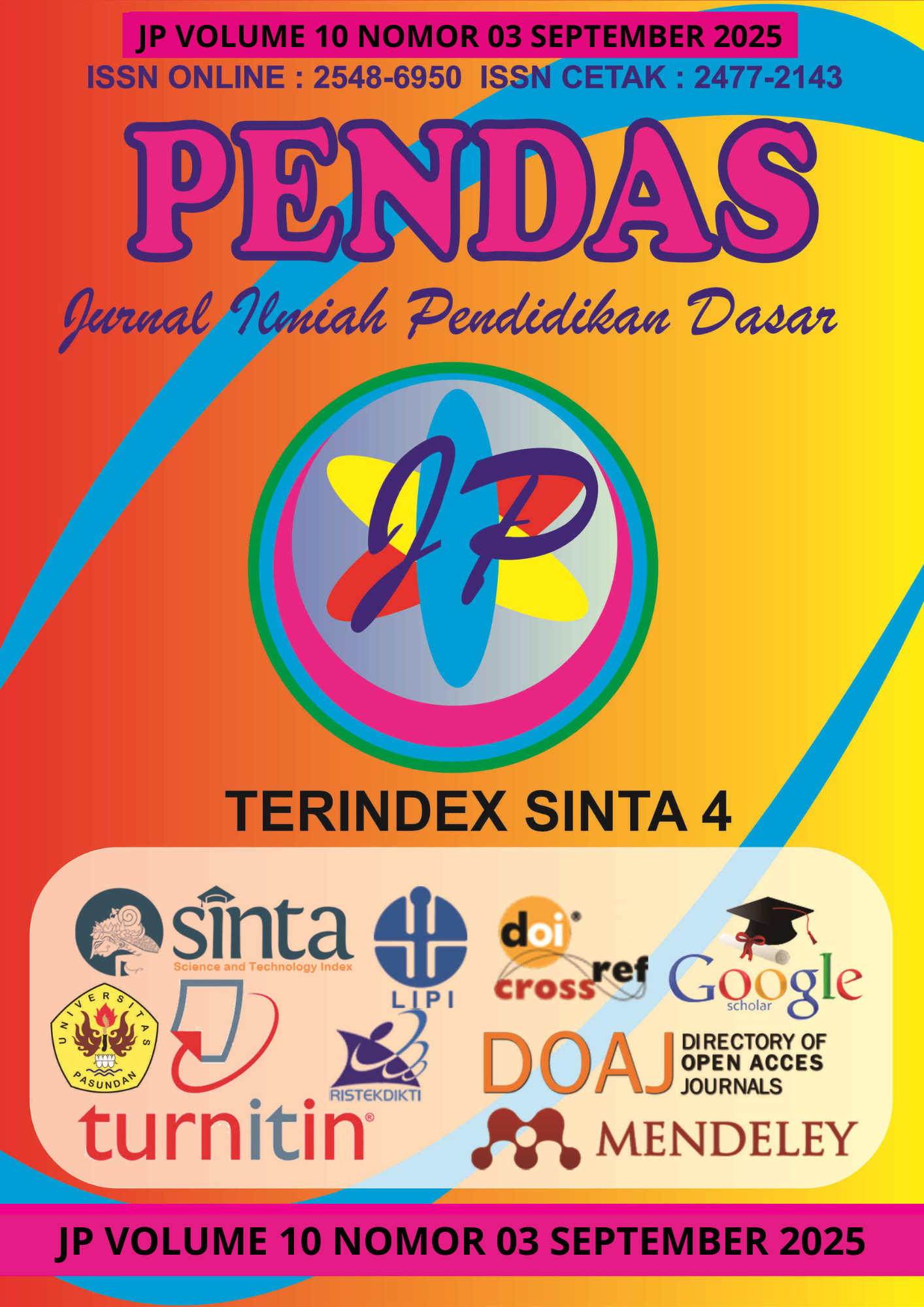ANALISIS SELF-DISCLOSURE GEN Z PADA CLOSE FRIEND INSTAGRAM: STUDI RUANG PRIVAT DI MEDIA SOSIAL
DOI:
https://doi.org/10.23969/jp.v10i03.34086Keywords:
Self-Disclosure, Gen Z, Close Friend, Instagram, PrivacyAbstract
The development of social media has changed the way the younger generation builds social relationships and expresses themselves. One of the most widely used features is close friends on Instagram, which allows users to create semi-public private spaces to share more personal things. This study focuses on the self-disclosure patterns of Generation Z aged 18–25 years through the use of these features, emphasizing the reasons for self-disclosure, audience selectivity strategies, and the consequences caused. The research method uses a qualitative approach with in-depth interview techniques with a number of informants from generation Z aged 18–25 years. The data were analyzed thematically to identify the patterns, meanings, and dynamics of self-openness in a digital context. The results of the study show that the close friend feature is interpreted by Generation Z as a safe space to vent, express emotions, channel humor, and seek social validation without having to worry about being seen by a wide audience. Audience selectivity is the main strategy, where informants only select certain individuals who are considered trustworthy. The conclusion of the study is that close friends function as a private space on social media for Generation Z aged 18–25 years, but the self-openness that occurs is still negotiated between the need to maintain privacy and the urge to build social relationships.
Keywords: Self-Disclosure, Gen Z, Close Friend, Instagram, Privacy
Downloads
References
bdussamad, Z. (2021). Metode Penelitian Kualitatif. Syakir Media Press.
Agustinus, M., Roland, S., & Simanjuntak, T. (2025). The Influence of Self Concept and Interpersonal Attraction on Social Media Users in Students of the Faculty of Social and Political Sciences , University of North Sumatra. 4(8), 3963–3982.
Al Azis, M. R., & Irwansyah. (2021). Fenomena Self-Disclosure Dalam Penggunaan Platform Media Sosial (Studi Deskriptif pada Akun Selebgram). Jurnal Teknologi Dan Sistem Informasi Bisnis, 3(1), 120–130.
Alamsyah, A. G., Ardelisma, A., Nugraha, A., & Jannah, M. (2025). Second Instagram accounts: A study of Generation Z’s Self-Identity in Medan. Satwika : Kajian Ilmu Budaya Dan Perubahan Sosial, 9(1), 62–77. https://doi.org/10.22219/satwika.v9i1.38102
Angelina, S., & Aprilia, M. P. (2022). Manajemen Privasi Komunikasi pada Fenomena Instagram Stories Remaja di Yogyakarta Communication Privacy Management on Yogyakarta Adolescent’s Instagram Stories Phenomena. Connected Jurnal Ilmu Komunikasi, 3(1), 1–14.
Apriyanti, E., Sari, S., & Dianthi, M. H. (2024). Self Disclosure Pada Komunikasi Generasi Z. Professional: Jurnal Komunikasi Dan Administrasi Publik, 11(1), 417–426. https://doi.org/10.37676/professional.v11i1.6386
Azzahra, F., Handayani, L., & Mahdalena, V. (2022). Manajemen Privasi Komunikasi Mahasiswa Upn Veteran Jakarta Pada Fitur Close Friend Di Instagram. Jurnal Pustaka Komunikasi, 5(2), 318–330. https://doi.org/10.32509/pustakom.v5i2.2140
Bilqis, T. D., Alfiani, M. R., Gayatri, F. A., & Cuhandi. (2024). Dramaturgi Dalam Media Sosial: Second Account Di Instagram Sebagai Self Disclosure. HUMANUS : Jurnal Sosiohumaniora Nusantara, 1(2), 155–164. https://doi.org/10.62180/914e5g76
Brahmana, P. A., Amina, A. K., Suciati, P., & Maulidiyanti, M. (2024). Consumer Perceptions of Generation Z of Go-Ride Service Product Based on Marketing Mix Concept. Jurnal Communio : Jurnal Jurusan Ilmu Komunikasi, 13(2), 294–306. https://doi.org/10.35508/jikom.v13i2.9408
Candika, I. K., Angga, W., & Nugroho, H. B. (2025). Konstruk Sosial dan Teknologi : Fenomena Penggunaan Fitur Close Friend dalam Second Account Instagram. 8, 308–327.
Damastuti, V. A. B. R. (2024). PHENOMENON OF SELF DISCLOSURE IN USE SECOND INSTAGRAM ACCOUNT, STUDY PHENOMENOLOGY OF GEN-Z IN YOGYAKARTA. 1(1), 169–180.
Desideria, N., & Syaki, W. R. (2023). Fake Instagram: Manajemen Identitas Dan Privasi Melalui Fenomena Finstagram. Tuturlogi, 3(2), 53. https://doi.org/10.21776/ub.tuturlogi.2022.003.02.1
El, H., Wibisono, G., & Pratisti, W. D. (2022). International Summit on Science Technology and Humanity (ISETH) 2022 Academic Improvement for Recovery Acceleration Self-Disclosure of Generation Z. 1, 282–288.
Faidlatul Habibah, A., Shabira, F., & Irwansyah, I. (2021). Pengaplikasian Teori Penetrasi Sosial pada Aplikasi Online Dating. Jurnal Teknologi Dan Sistem Informasi Bisnis, 3(1), 44–53. https://doi.org/10.47233/jteksis.v3i1.183
Fitriana, F. (2024). Media Sosial Dalam Membentuk Pola Komunikasi Dan Pemikiran Generasi Z: Tinjauan Empiris Tiga Tahun Terakhir. RETORIKA : Jurnal Kajian Komunikasi Dan Penyiaran Islam, 6(2), 89–99. https://doi.org/10.47435/retorika.v6i2.3402
Gultom, S. F., & Rohani, L. (2024). Pengaruh Aktualisasi Konsep Diri dalam Self - Disclosure Gen Z terhadap Second Account pada Aplikasi Instagram di Kota Medan. Jurnal Satwika, 8(April), 1–9. https://ejournal.umm.ac.id/index.php/JICC/article/view/33098
Herna, H., & Sari, A. A. (2023). Komunikasi Dalam Pengembangan Hubungan Antarpribadi Melalui Second Account Instagram. WACANA: Jurnal Ilmiah Ilmu Komunikasi, 22(2), 272–282. https://doi.org/10.32509/wacana.v22i2.3111
Herwandito, S., Wahyudi Utomo, A., Kristen Satya Wacana, U., Diponegoro, J., & Tengah, S.-J. (2021). Cunsumer Behaviour of Millenials in Marginal Rural Areas Mamboro Sub District Province of Central Sumba. Jurnal Magister Ilmu Komunikasi, 7(1), 141–162. https://www.bps.go.id/indikator/indikator/view_data/
Monica Hartono, A., Syukron Febriananda, M., Vita Achmada, D., Ilmu Komunikasi, P., & Ilmu Sosial, J. (2022). Tiktok sebagai platform venting mendorong cyberbullying gen-z. Universitas Negeri Surabaya, 2022(13), 13–22.
Downloads
Published
Issue
Section
License
Copyright (c) 2025 Pendas : Jurnal Ilmiah Pendidikan Dasar

This work is licensed under a Creative Commons Attribution 4.0 International License.














































